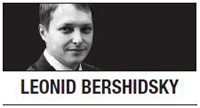President Donald Trump’s steel and aluminum import tariffs may play havoc with economic orthodoxy, but they fit an established American political tradition: They mostly benefit the swing states that carried the 2016 election for Trump.
In a working paper published Monday, Xiangjun Ma of the University of International Trade and Economics in Beijing and John McLaren of the University of Virginia show that US import tariffs are designed to favor industries located in swing states. “Our best estimate is that the US political process treats a voter living in a nonswing state as being worth 77 percent as much as a voter in a swing state,” Ma and McLaren wrote.
The example they used in the paper involved tariffs on imports from Mexico in 1990s. But their “swing state theorem” is easily applied to Trump’s new tariffs.
“Metal-Refining Furnace Operators and Tenders” is a blue-collar specialization that exists largely in the steel and aluminum industries, with some non-ferrous metal production thrown in. There were a total of 17,730 such workers in the US in 2016, according to the Bureau of Labor Statistics, 76 percent of them employed at aluminum smelters, steel mills and foundries. And which five states employ the most furnace operators? Indiana, Pennsylvania, Alabama, Ohio and Michigan, of course.
Indiana usually votes Republican, though Barack Obama was able to tip it in 2008. Alabama is comfortably red in presidential elections. But the other three states in the top five swung the 2016 election to Trump. He won Ohio by 8.07 percent, Pennsylvania by 0.72 percent and Michigan by 0.22 percent. The victories in Pennsylvania and Michigan -- crucial parts of the so-called “Blue Wall” -- particularly blindsided the Clinton campaign. Outside the top five but close to it are two more states where Trump won narrow victories -- Wisconsin and North Carolina.
Whether consciously or intuitively, Trump appears to be paying back the states that handed him his extraordinary victory in 2016. As in the coal industry, Trump’s help won’t result in many steel and aluminum jobs.
The new tariffs may even end up hurting the swing states, though in Michigan, for example, Democratic politicians appear much more worried about that possibility than Republican ones. But Trump’s exemptions for Canada and Mexico minimize the possibility of serious damage from retaliation. And he’s creating the impression that he hasn’t forgotten the disenchanted blue-collar whites who delivered him to power.
Trump has been criticized for hitting allies with the tariffs -- the European Union may or may not get an exemption -- and for potentially starting trade wars with countries as huge as India and China. He wasn’t elected in any of these countries, though, and their outrage, as well as the echoes it gets from American elites in big cities, only boosts his political theater.
Other presidents have played the game before. After NAFTA went into effect, Florida’s tomato industry petitioned President Bill Clinton for relief. Though it wasn’t a big, nationally important industry, Florida was a hotly contested state in which every vote mattered, so Clinton made the issue a priority.
A special agreement with Mexico, establishing a price floor for imported tomatoes, was signed in 1996. In their paper, Ma and McLaren quoted a New York Times story in which an anonymous official explained the development: “The math was pretty simple. Florida has 25 electoral votes, and Mexico doesn’t.’’
To Ma and McLean, import tariffs are just one medium through which US politicians lavish favors on swing states. The reason they focused on it was the relative ease of quantifying the effect.
The economists argue that the privileged position of swing states is a systemic flaw for US politics -- and an argument for abolishing the Electoral College. If the national vote total determined the outcome, other biases would almost certainly be created -- perhaps in favor of the nation’s biggest cities and industries.
Those biases, however, probably wouldn’t be as idiosyncratic as the current one in favor of swing states. Today, a New Yorker or a Silicon Valley tech worker just isn’t worth as much to politicians as one of the 1,020 furnace operators in Michigan. Only the latter’s vote can be decisive in who wins the presidency in 2020. Even if Trump’s critics are on the right side of the tariff debate, he’s on the right side of the only battle that matters to giving him another four years in the White House.
By Leonid Bershidsky Leonid Bershidsky is a Bloomberg View columnist. -- Ed.
(Bloomberg)






![[KH Explains] How should Korea adjust its trade defenses against Chinese EVs?](http://res.heraldm.com/phpwas/restmb_idxmake.php?idx=645&simg=/content/image/2024/04/15/20240415050562_0.jpg&u=20240415144419)